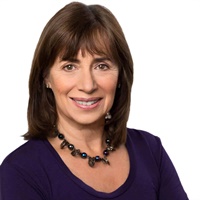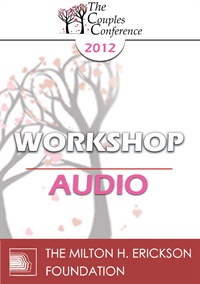CC12 Workshop 09 – “We Can’t Communicate” What Does This Mean? – Ellyn Bader, PhD
- Average Rating:
- Not yet rated
- Topic Areas:
- Workshops | Communication | Couples Therapy
- Categories:
- Couples Conference | Couples Conference 2012 | Pioneers in Couples and Family Therapy
- Faculty:
- Ellyn Bader, PhD
- Duration:
- 1:01:18
- Format:
- Audio Only
- Original Program Date:
- Apr 28, 2012
- License:
- Never Expires.
Description
Description: Couples come to therapy saying “we can’t communicate.” It sounds simple. Yet what does this really mean? Closer examination often reveals trauma, chronic hostility, narcissistic entitlement, or long-term conflict avoidance. And resolution requires internal self-development that may be resisted by one or both partners. This advanced workshop will use video segments to demonstrate the intricacies of resolving predictable communication breakdowns and supporting couples development.
Educational Objectives:
- Demonstrate how to encapsulate each partner’s developmental growth edge.
- Delineate 5 steps in supporting differentiation.
*Sessions may be edited for content and to preserve confidentiality*
Case Study – First Therapy Session
- Video example: Couple overwhelmed by drugs, alcohol, financial stress, and conflict avoidance.
- Early therapy should demonstrate what good communication feels like.
- Vulnerability and emotional openness create connection.
Intervening in Negative Communication Cycles
- Example: Dave feels overwhelmed; Tammy copes by withdrawing.
- Therapist encapsulates both partners’ behaviors non-judgmentally.
- Common self-protective strategies: blame, withdrawal, victimhood, confusion, resentful compliance.
Building Emotional Capacity
- Couples need to build emotional resilience for better communication.
- Creating new brain pathways comes from positive, vulnerable interactions.
- Therapists must guide couples to take emotional risks ("developmental assists").
Differentiation in Communication
- Differentiation = expressing yourself while staying connected.
- Requires self-reflection, expressing desires, and staying open.
- Roles explained:
- Initiator: Brings up issues vulnerably.
- Inquirer: Listens, asks curious questions, stays open.
- Personal story: Speaker facing down a cheetah—staying calm and curious under pressure.
Practical Tools for Couples
- Initiator-Inquirer Process:
- Initiator raises issues without defensiveness.
- Inquirer listens deeply and asks clarifying, curious questions.
- Especially helpful (and tricky) with hostile couples—must be set up carefully.
- Focus on creating "soothing moments" to reinforce good communication.
Final Thoughts & Exercises
- Encourage personal/professional risk-taking to improve communication skills.
- Reflect on becoming a better initiator or inquirer in key relationships.
- Exercise: Identify personal areas for growth in communication.
- Workshop concludes with thanks and resources for further learning.
Credits
Handouts
| Timestamped Transcript (759.7 KB) | 16 Pages | Available after Purchase |
| Ericksonian Learning Snapshot (246.8 KB) | 2 Pages | Available after Purchase |
Faculty

Ellyn Bader, PhD Related Seminars and Products
Ellyn Bader, PhD, is a founder and director of The Couples Institute in Menlo Park, California. As a clinical psychologist, workshop leader, author, and speaker, she is dedicated to helping couples create extraordinary relationships. Over the past 30 years she has trained therapists in couples therapy throughout the United States as well as Europe, Asia, South America, and Australia. She served as a Clinical Faculty in Stanford University School of Medicine for 8 years.


